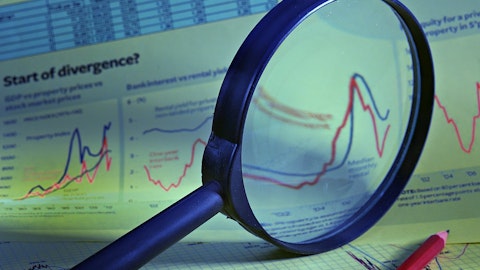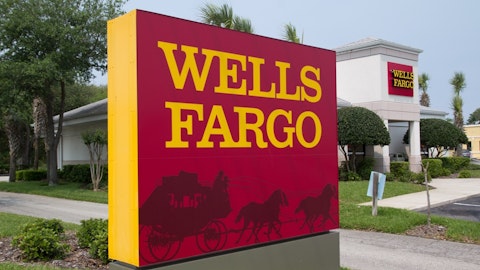3. CarMax, Inc. (NYSE:KMX)
Makaira Partners’ Holdings: $55.9 million
Makaira Partners’ Portfolio: 11.82%
Number of Hedge Fund Holders: 36
CarMax, Inc. (NYSE:KMX) is a retailer and financier of used vehicles in the United States. It covers a large variety of vehicles and also conducts auctions alongside providing reconditioning and repair services.
CarMax, Inc. (NYSE:KMX) earned $7.9 billion in revenue and $1.72 GAAP EPS for its second fiscal quarter, beating analyst estimates for revenue only. Wedbush raised its price target to $160 in November 2021, stating that its upside risk outweighs downside risk.
Mr. Bancroft’s Makaira Partners owned 437,377 CarMax, Inc. (NYSE:KMX) shares as the third quarter of this year ended, which were worth $55.9 million. They represented 11.82% of Makaira Partners’ portfolio. By Q3 2021 end, 36 of the 867 hedge funds polled by Insider Monkey had holdings in the company.
CarMax, Inc. (NYSE:KMX) biggest investor is Charles Akre’s Akre Capital Management who owns 7.1 million shares worth $909 million.
Giverny Capital mentioned CarMax, Inc. (NYSE:KMX) in its Q2 2021 investor letter, stating that:
“We’re quite optimistic about Carmax, our second largest position. For several years, investors have gravitated to a thesis that a handful of start-ups that sell used cars in an online-only format will end up with a lower cost structure than Carmax. This even though Carmax appears today to have lower costs to buy used cars for its inventory, recondition them for resale and transport them to stores – all problems that are not solved by a good web site. Carmax also amortizes its national advertising over a much larger sales base than competitors, giving it lower marketing expense per vehicle.
Nevertheless, Carmax was slow to respond to the emerging market for online car shopping. The good news is that it ultimately responded with vigor. Over the past few years it has seen operating margins contract as it invested in an omnichannel capability that lets customers buy fully online or do a portion of the transaction online and a portion in the store. Importantly, the customer chooses exactly which parts of the transaction to complete online or in store.
Now, it may be harvesting rewards. Carmax’s most recent earnings report was eye-popping. With its omnichannel transformation complete, Carmax reported that comparable sales rose 99% (on a pandemic-depressed comparison) in its May quarter, far ahead of expectations. The two-year comparable sales increase was 16%. Profit margins expanded and Carmax even suspended a test of lower prices in select markets, which was meant to measure elasticity of demand, because it was having no trouble selling cars at higher prices.
Carmax reported that 75% of transactions in the May quarter involved a customer completing a portion of the deal online, but only 8% were completed entirely online. Customers clearly like doing some parts of a transaction online and some parts in person. Importantly, Carmax now is the country’s largest online buyer of used autos from consumers, meaning it is acquiring inventory efficiently in the channel that the start-ups ostensibly were going to dominate.
Since releasing its earnings report in late June, Carmax shares are up sharply. Yet the stock’s high-teens PE multiple remains below the S&P average for a business with outstanding growth prospects and a likely return on equity above 25% this year. The used car market, like every other market, is overheated and will cool off at some point. But we feel good about our second-largest holding.”





